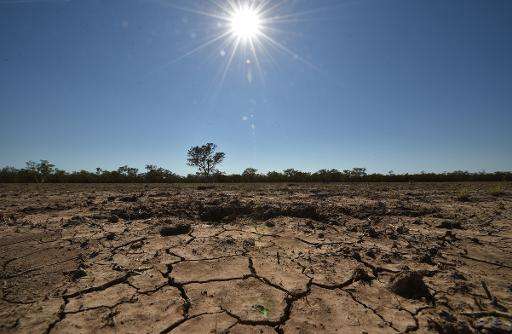Heat saps Australian workers' productivity, study says

Worker productivity lost due to heat stress cost Australia some US$6.2 billion (5.6 billion euros) in 2013/14, said a study Monday that warned of worse to come as the planet warms.
Three-quarters of respondents to a productivity questionnaire said they were affected by heat at the workplace over a 12-month period, according to findings published in the journal Nature Climate Change.
Seventy percent said heat had made them less productive on at least one day in the previous 12 months, and seven percent said they had been absent from work at least one day.
Based on data obtained from the representative group of 1,726 working Australians aged 18 to 65, a team of international researchers calculated the annual cost of absenteeism and impaired performance due to heat at $655 per person.
"This represents an annual economic burden of around $6.2 billion for the Australian workforce," the team wrote. "This amounts to 0.33 to 0.47 percent of Australia's GDP."
The study was done in a particularly hot period in Australian history—2013 was the warmest year on record and 2014 the third warmest.
The findings "suggest that adaptation measures to reduce heat effects should be adopted widely if severe economic impacts from labour productivity loss are to be avoided if heat waves become as frequent as predicted," wrote the authors.
Negative impacts from heat can include accidents due to concentration lapses, and lower productivity due to impaired decision-making or fatigue.
Already one of the warmest continents, Australia is particularly at risk of more frequent heat waves as a result of global warming.
It is also one of the world's top per capita emitters of planet-warming greenhouse gases.
The world's nations are negotiating a global pact to limit carbon emissions from fossil fuel burning. The agreement is meant to be sealed at a global summit in Paris in December, and take effect from 2020.
More information: Nature Climate Change, DOI: 10.1038/nclimate2623
Journal information: Nature Climate Change
© 2015 AFP















